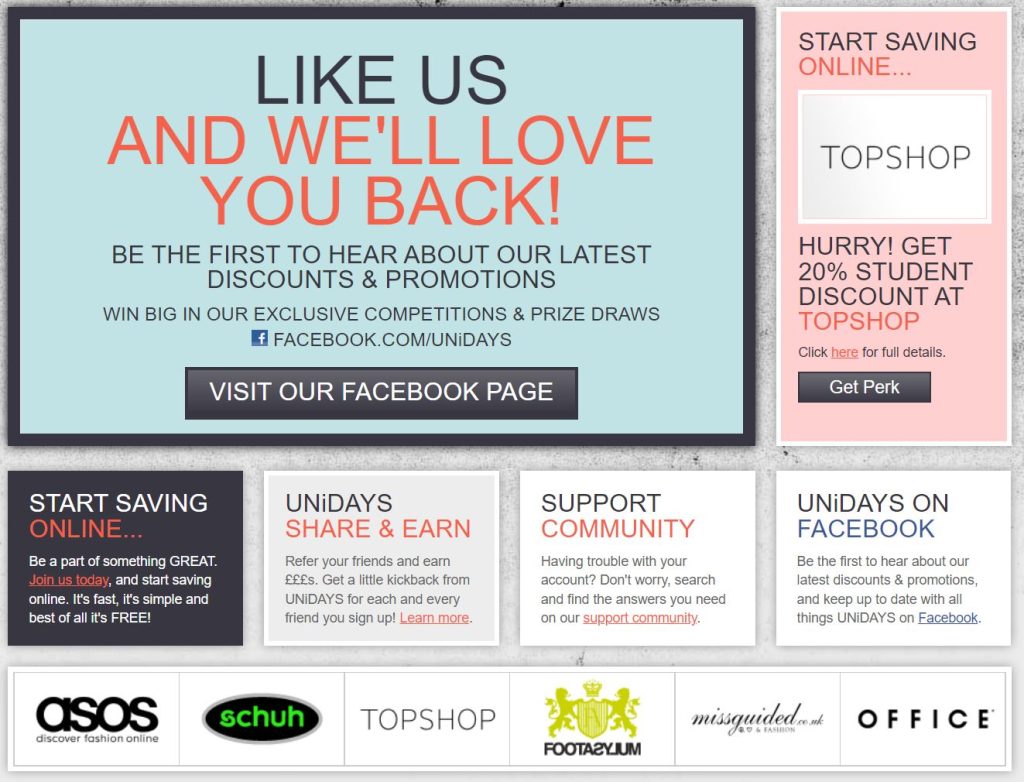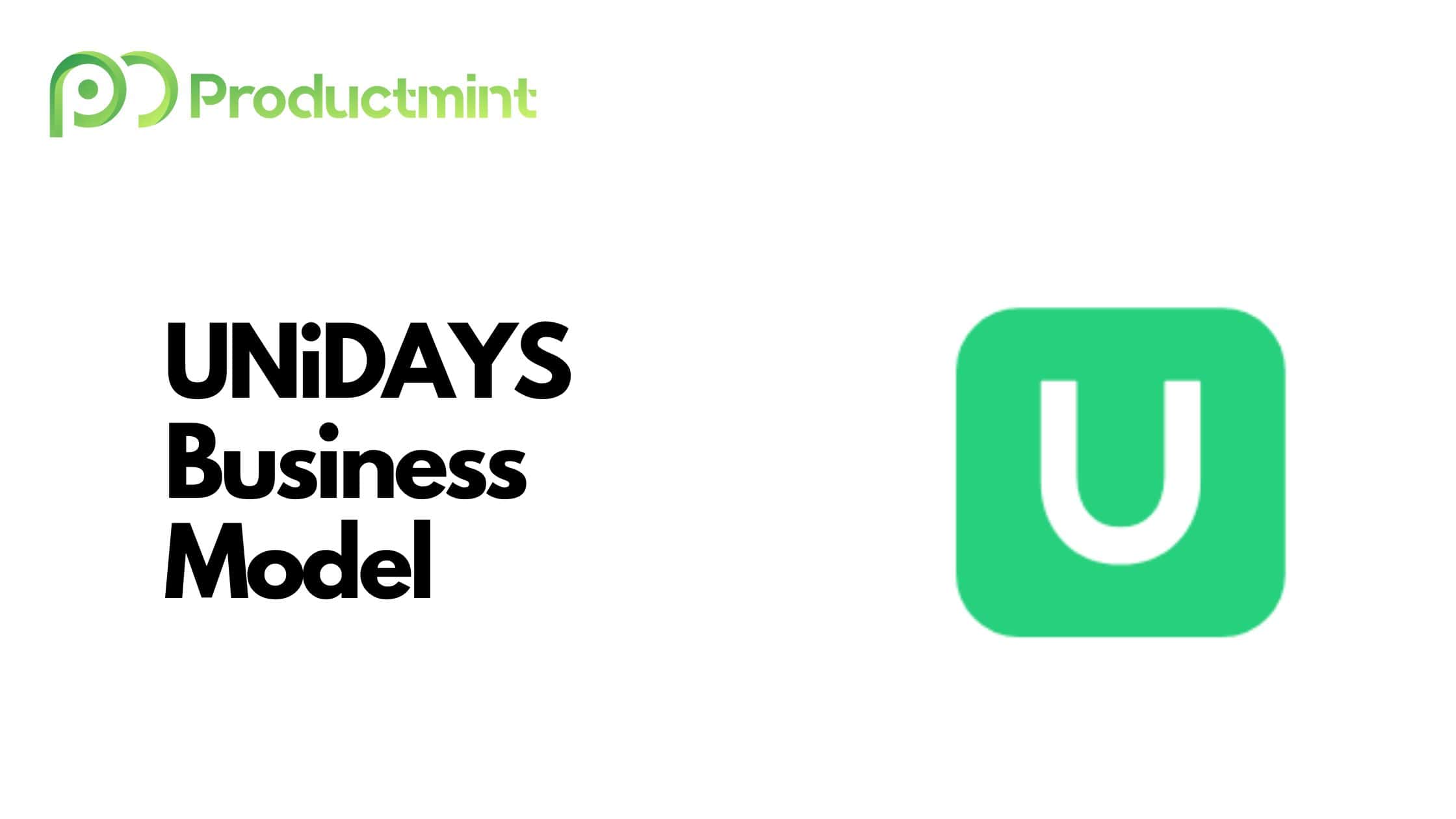Executive Summary:
UNiDAYS is a global affinity network that provides exclusive deals and discounts of up to 50 percent to students.
UNiDAYS makes money through commissions paid by its brand partners as well as through marketing services. It operates under an affiliate business model.
Founded in 2011, it is now the leading platform of its kind. In 2021, UNiDAYS generated over £53 million in revenue.
How UNiDAYS Works
UNiDAYS is a global affinity network that provides exclusive deals and discounts of up to 50 percent to students.
The platform works together with more than 800 world-renowned brands such as Apple, Foot Locker, Microsoft, Nike, and Samsung.
It offers those discounts in a variety of categories including fashion, technology, food & drink, education, and more. Those discounts can be accessed when shopping online or in stores.
What separates UNiDAYS from many other platforms is the fact that each member is authenticated, thus providing advertisers with the certainty that they are reaching real people.
Therefore, only people attending university can join UNiDAYS. Members need to either provide a personal institution email address or a credit card-style student ID issued when setting up their accounts.
The company has since launched a service aimed at those who have recently finished university called Gradlife.
UNiDAYS itself can be accessed by visiting its website or by downloading the firm’s mobile app, which is available on Android and iOS devices.
Detailing The Founding Story of UNiDAYS
UNiDAYS, which is headquartered in Nottingham, United Kingdom, was founded in 2011 by Josh Rathour, Jon Hawley, and Andrew Bullock. The three founders are all from the Nottingham area where they attended the local Trent University.
CEO Rathour, prior to launching UNiDAYS, had experimented with his own businesses as well. For example, he ran a local golf course but ultimately realized that he didn’t want to operate said business.
And it was his daughter Asha who ultimately became the inspiration for starting UNiDAYS. Back when she was young, she told Rathour she was worried about her safety on the internet since there wasn’t any formal verification system that authenticated the users she was engaging with.
After months of hard work, they finally unveiled the myunidays.com website back in May 2012. At launch, the team already managed to sign up partners like ASOS and Topshop.

Over the course of the coming years, they managed to onboard heavy hitters such as Apple and Spotify as partners.
Fast forward to 2016 and the site had already amassed more than 8 million members across the UK, the US, Australia, and New Zealand. 500+ brands had joined UNiDAYS in the meantime.
The firm’s success, which the founders accomplished without taking on any outside funding, even allowed UNiDAYS to set up a dedicated marketing agency that would advertise
One of the reasons for its rapid ascend was its early focus on mobile. UNiDAYS already had an app within months of launching, which proved to be particularly popular with its Gen Z audience.
Meanwhile, advertisers would be attracted to the platform because they know that they were dealing with real people and not bots.
Unfortunately, not everything was always going according to plan. In December 2018, allegations surfaced, stating that CEO and founder Rathour had been engaged in sexual harassment and bullying.
Some staff was reportedly even forced to sign so-called gagging orders, thus prohibiting them from disclosing their grievances.
A former group of UNiDAYS employees also created a group called Organise, which was actively campaigning against Rathour. Meanwhile, sites like fightunidays.com would list all of the accusations against the founder.
The allegation ultimately led brands like Boohoo and Pretty Little Thing to terminate their relationships with UNiDAYS. However, nothing consequential came from the allegations and signed petitions, which meant that Rathour remained in charge.
In fact, the company’s star only continued to ascend. Throughout 2020 and 2021, UNiDAYS’ user base and brand partnerships increased significantly, in part because of pandemic-related lockdowns.
The firm also upped the depth of its brand partnerships. It launched various competitions with firms such as Converse, Missguided, and Adobe that allowed students to not only win cash prizes but also land internships at both UNiDAYS and those partners.
Furthermore, in July 2021, it launched a second platform called Gradlife, which is aimed at accommodating those that just finished university.
A month later, it surpassed the inaugural mark of 20 million members for the first time. All of that success enabled UNiDAYS to make its first-ever acquisition. In February 2022, it acquired the Indian digital student verification provider Student Identify.
Today, UNiDAYS employs over 200 people across offices in Nottingham, London, New York, and Sydney.
How Does UNiDAYS Make Money?
UNiDAYS makes money through commissions paid by its brand partners as well as through marketing services.
The business model of UNiDAYS is predicated on receiving affiliate commissions from brands that pay the platform for every successful conversion.
Many campaigns on the platform regularly reach conversion rates of around 50 percent, substantially above comparable affiliate platforms.
One of its German campaigns for fashion brand NA-KD even drove more sales in 24 hours than the firm’s entire Black Friday turnover.
But why is UNiDAYS so successful at driving conversions for its partners? First and foremost because all of the platform’s users are being authenticated and thus represent real people.
The second aspect is that UNiDAYS often works together with highly relevant partners. For example, it often surveys its users on what they most desire or struggle with.
Past survey results have indicated that students are in dire need of laptops, which prompted UNiDAYS to work together with brands like Dell or Microsoft to offer discounts on their devices.
Brands are also incentivized to work with UNiDAYS because its members represent the high earners of the future. As such, you want to captivate their attention as early as possible.
After all, there’s also no risk for those brands since they only compensate UNiDAYS whenever a sale has been facilitated through the site.
Furthermore, UNiDAYS has made its platform more defensible by building custom integrations with dozens of student registration systems, thus making it harder for new competitors to enter the space.
Apart from generating revenue through affiliate commissions, UNiDAYS also makes money from marketing services.
As previously stated, it works together with brands like Adobe or Converse and hosts dedicated challenges on their behalf.
Those partners likely pay UNiDAYS a fixed fee in exchange for those marketing services. Again, the key here is that UNiDAYS is able to raise awareness on behalf of its partners while creating affinity for their products.
What’s the Revenue That UNiDAYS Generates?
UNiDAYS generated £53,572,740 in annual revenue during the fiscal year 2021 according to company filings.
This represents a stellar increase of 47 percent from the £36,361,433 million it generated in the year prior.
Meanwhile, operating profit for 2021 was equal to £25,838,506, an increase of 146 percent from the year prior (£10,514,781).
The firm’s ability to generate such profits is little surprising considering that only around 200 people are employed by UNiDAYS. The Covid pandemic also contributed heavily to the digital investments that its partners made over that timespan.
Who Owns UNiDAYS?
Founder and CEO Josh Rathour remains the majority owner of UNiDAYS. He currently owns 6 million shares according to the above-cited company filings, equal to an ownership stake of 58.04 percent.
Here is an overview of all of the firm’s shareholders:

A significant portion of the remaining shares, namely around 25 percent, is owned by Josh Rathour’s brother Gurcharn and mother Sheila.
Co-founders Jon Hawley and Andrew Bullock also continue to own around 7.75 percent each. While Hawley remains actively involved in the business, Bullock has since moved on to other endeavors (he left UNiDAYS back in December 2019).
